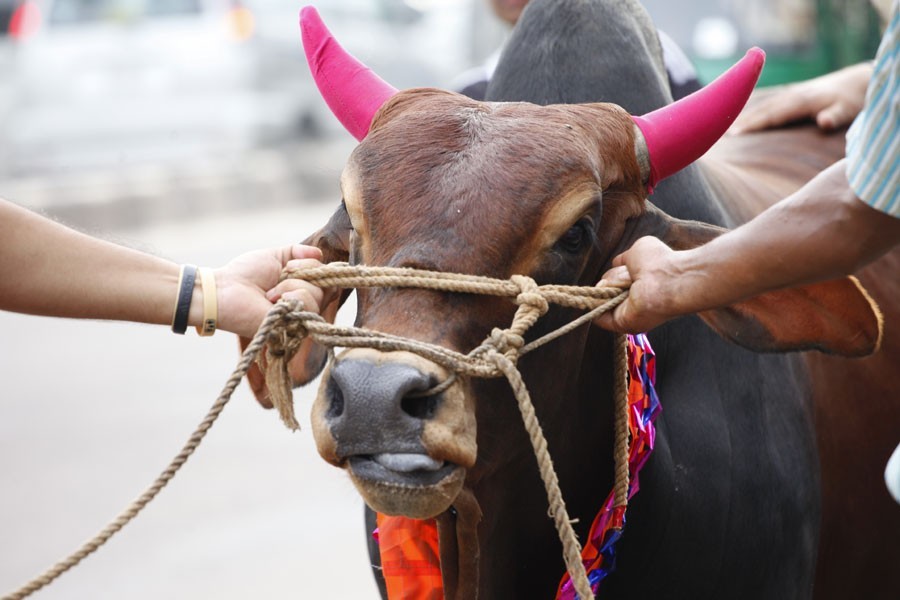The Muslims' second most important religious festival, the Eid-ul-Azha, is taking place on August 01 (Saturday). Since the pandemic situation is still raging, the devotees will be required to celebrate the occasion on a rather limited scale duly maintaining the mandatory health protocols. Simultaneously a large part of the country is reeling from the floods causing a great deal of human suffering and misery. Against this challenging and testing background, Eid-ul-Azha comes with a deeper calling for sacrifice. This sacrificial sprit has to do with striking a balance between a fervent observance of the occasion and maintenance of health protocols for all the citizens' well-being. It is a test of religious fervour underpinned by ennobling commitment to the welfare of fellow beings that we are called upon to redeem. This is a challenge the country has to live up to; particularly when the compatriots are reputed for their resilience enabling them to rise to the occasion.
Since this particular festival involves Qurbani, or sacrifice of animals, its participants as usual will visit cattle markets to buy their sacrificial animals. Although the government has been encouraging on-line marketing of cattle as an alternative option to avoid crowding, the general public is yet to get used to it. This does not however miss the increasing trend towards buying online which is an encouraging sign and one believes the total transactions may work out to an impressive figure creating a healthy precedent. The assurances from the government's health department, or from the local government bodies, the cattle market organisers, that adequate measures would be taken to ensure social distancing, health checks and sanitising arrangements at the entry and exit points of the cattle markets have fostered a salubrious ambiance. Nonetheless, there would be the law-enforcers and mobile courts to discourage violation of the health protocols. The experience of the last Eid-ul-Fitr festival cannot be said to have been helpful. In fact, according to some, the level of pandemic transmission actually saw a rise after the last Eid-ul-Fitr for the simple reason that despite lockdowns, many Eid holidaymakers reunited with their relatives in the countryside.
Traditionally more people from bigger cities including Dhaka, visit their country homes for Qurbani purpose and then return after completing the ritual. So, the fear of spike in pandemic transmission after the Eid-ul-Azha may not be quite out of place. Undeniably, the common people have a great deal of fervour and passion about religious events. And that is more so when it comes to big festivals like the Eid, since performance of the related rituals is rooted in their religio-cultural ethos. But in the present context, they need also to realise that it is now a question of protecting public health and the precautions will have to come from within the individuals. Imams and scholars, whom the citizens trust regarding religious matters, may also bring to bear their influence on the matter.
The fact that, unlike any time in the past, the Hajj this year has begun on an extremely limited note marking a departure from its being the largest congregation of the Muslims holds a cue to restrained observance. But this must be without detracting from its inner massage of sacrifice.


